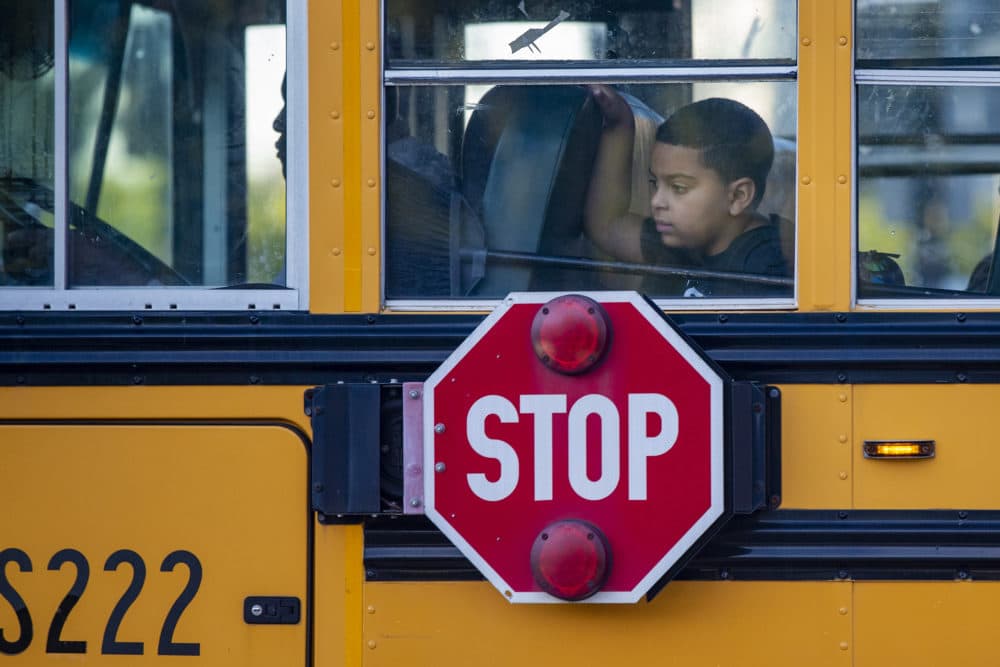Advertisement
There's a frustrating tangle of causes behind Boston's school transportation problem

School transportation in Boston is very expensive — and less than reliable. An independent audit has found many reasons why.
The report — compiled by experts from the Council of the Great City Schools, a national nonprofit organization — comes as part of Boston Public Schools’ compliance with the systemic improvement plan agreed between the city and state in June.
And it emphasized just how far the district has to go before it has an efficient and reliable school transportation system.
Some of the causes identified by the report are structural, or woven into the district’s very identity. The district has had to run buses not only to and from its own 125 schools, but also for 105 charter, parochial and private schools. Boston’s school choice system means many city students attend schools far from their homes — meaning more buses driving more miles each day.
“That is not problematic in and of itself — it’s part of the policy of the district,” said Ray Hart, president of the Council of the Great City Schools, as he introduced the report before Boston’s school committee Wednesday evening.
However, Hart added that the policy "directly impacts the efficiencies of transportation for students: on-time arrivals, missed stops [and] average ride times.”
Boston's school bus fleet serves 21,500 students, accommodating a complex puzzle of various school start times: 24 different morning bell times, 20 midday bell times and 29 different afternoon bell times, according to the report.
The cost of the school district's bus transportation vendor contract has ballooned by $24 million since the 2018-19 fiscal year and is now $143 million, or 10% of the district's total budget in the current school year, the report adds.
Superintendent: 'We have to get this right'
Superintendent Mary Skipper said she’s pleased with this year’s improvements in on-time bus arrivals to school, including a 91% success rate coming out of the holiday break and a 93% on-time rate in December.
While the on-time arrival rate has improved since the start of the school year, BPS has struggled to meet a 95% rate, as required by the school improvement plan.
Skipper acknowledged the district has “a long way to go” before it resolves many of the issues identified in the report. She said she was determined to make necessary changes.
“We have to get this right for children and families … we have to be able to [have] safe and reliable transportation," she said.
The remaining problems detailed in the report were more administrative: unclear or poor data collection on bus utilization rates, increased costs by Transdev, BPS' longtime out-of-district vendor and Boston's 24 distinct school start times each morning.
But even those problems could be difficult to correct quickly. The report’s authors recommend streamlining school start times into three “tiers,” and in coordination with charter and parochial schools.
But they also pointed out that there would likely be resistance when it came to start times. The district’s last effort to reform start times, made in 2017, stalled in the face of a parent outcry.
